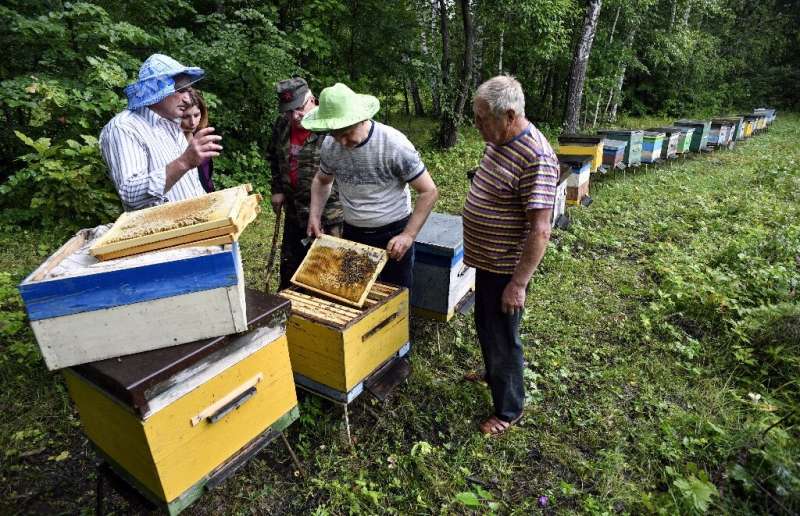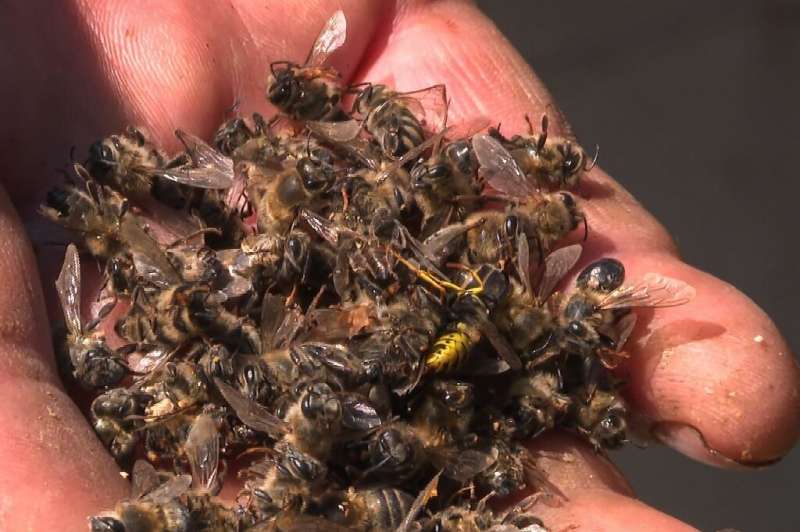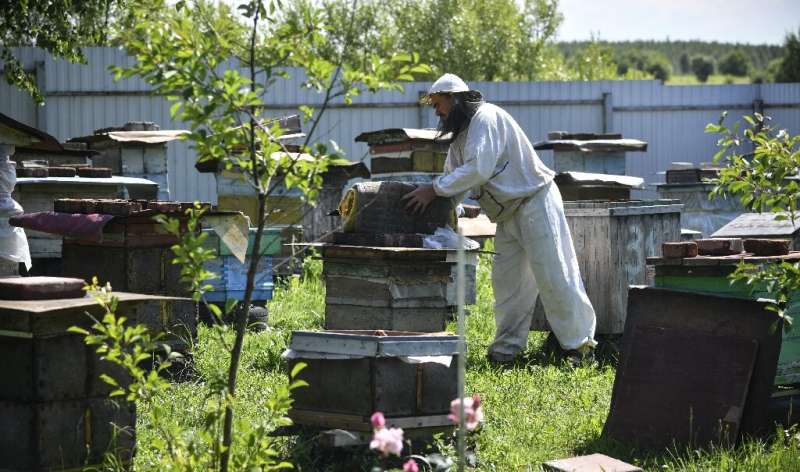- hot-spots
- chemical pollution
- Russian Federation
- Mass death of bees in Tula region, Russia

Mass death of bees in Tula region, Russia
Russian Federation
last update:
2 months agoProblems
The decline of bee populations is a cause for concern, as bees play a crucial role in pollinating crops and maintaining ecosystems. Beekeeper, who keeps a large honeybee farm on the edge of a small village in the Tula region south of Moscow, is one of hundreds of beekeepers across Russia to report mass bee deaths. Eighty-two bee colonies—almost the entire farm—have died and the survivors will unlikely make it through the winter, he said. All the bees in the vicinity have met the same fate.
Causes of mass death of bees in Tula region
Containers lying on the ground alongside the rapeseed fields a strong insecticide that contains fipronil. A lab in Moscow confirmed the presence on the rapeseed plants of fipronil, which is legal in Russia provided certain precautions are taken but banned in the EU. "They broke all the rules possible" regarding spraying, said beekeeper. Worker bees gathered the toxic nectar and brought it to the hive, where even bees born days later were poisoned. Russia's agriculture watchdog confirmed the bee deaths were caused by uncontrolled use of insecticides and acknowledged that their use is not being monitored closely. Studies have shown that the neurotoxin fipronil, along with so-called neonicotinoid substances used in other pesticides, can cause bee colonies to collapse and harm other insects such as butterflies, as well as worms and fish. In Russia, they are still allowed: fipronil can be sprayed on potatoes, grains and pastures—but only at night in non-windy weather, with bees kept away for several days. Those requirements were ignored by farmers growing rapeseed in the Tula region, beekepers told AFP. But rapeseed is a delicate crop and experts say farmers are tempted to take more radical steps as pests become resistent to certain chemicals. "Pesticides are expensive, and sometimes they dilute them with cheap toxins and ignore application rules," said Anna Brandorf, who heads Russia's national beekeeping research centre. Not only is use of pesticides not monitored, she noted, but nobody coordinates between beekeepers and farmers about their use. Efforts to protect bee populations and promote sustainable agriculture practices are important for both environmental and economic reasons.
Global bee crisis
Russia is beginning to experience the same bee crisis as other parts of the world—one that has alarmed scientists and constitutes a threat to food supply—and has already forced some Chinese farmers to pollinate crops by hand. Tula is just one of 30 Russian regions that have experienced large-scale bee deaths according to the country's beekeeping association. The agriculture ministry said the deaths inflicted "considerable damage" on beekeeping nationwide. It is estimated that about 300,000 colonies have perished, out of a total of about 3.3 million.
Gallery
3Timelines
2019
July
Beekeepers in the Tula region noticed that their hives had been decimated, with thousands of dead bees found in and around their hives. The number of bee deaths was estimated to be in the millions. People around Bobrovka are certain that the culprit is a local company growing rapeseed, a cash crop with yellow flowers used for cooking oil, cattle feed, and biofuel, that treated its fields with insecticides.
2017
Fipronil had been used widely in the European Union scandal when it was found in Dutch eggs after being used illegally to treat chicken stables. The EU banned the use of fipronil and most neonicotinoids on outdoor crops.

